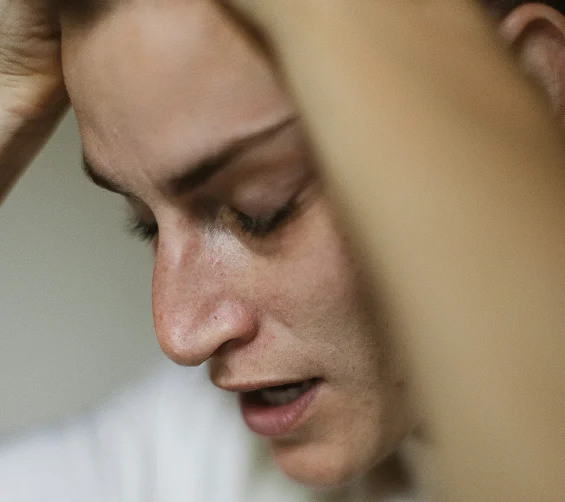Home » Drug Addiction Treatment Center » Heroin Addiction Treatment in Maine
Heroin Addiction Treatment in Maine
Dealing with addiction can feel hopeless, but there is good news. Heroin addiction does not need to be faced alone.

Treating Heroin Addiction in Maine
With help, those who are struggling can find the rainbow at the end of their storm. Recently published studies indicate that one in 10 adults in America have had a substance abuse issue, and 75% of those individuals report being in recovery or some form of rehabilitation program.
With all of the stigma and doomsday-ism around substance use disorder, knowing that there are so many others out there who have had the same issue and have survived with treatment shows the clear and central benefit of rehabilitation.
Understanding Heroin Addiction
Heroin is an opioid drug that is considered to be highly addictive. Like any addiction that comes from substance misuse, the impact goes beyond the individual user.
Everyone close to someone suffering from substance use disorder has to deal with the effects of the addiction, particularly members of the addict’s family. How each family and its members are affected is unique and can be dependent on the user’s situation, but common effects include legal problems, unmet developmental needs, emotional distress, and economic hardship. In some cases, there can even be a potential for violence.
For the individual in the grips of addiction, every aspect of their life can ultimately be affected. This includes everything from the workplace to being able to properly maintain relationships along with genuine health risks, such as illness or overdose.
Overdoses are the leading cause of death among Americans between the ages of 18 and 45. Heroin addiction has always been dangerous but has gotten even more so in recent years since the rise of fentanyl and xylazine, which could be mixed with heroin and dramatically increase the chance of an overdose.

Significance of Heroin Rehab
Research suggests that people who survive addiction more often than not thrive in long-term recovery. Many also reconnect with family, strengthening bonds that may have been damaged due to the behaviors that can go with addiction. The same studies point out that survivors of addiction who complete rehabilitation often wind up thriving financially as well. This is also true for those who have endured multiple relapses since the research shows that they are also part of the 75% who go on to a successful recovery.
It all starts with admitting the need for help and taking the first initial steps towards overcoming addiction.
Heroin Rehabilitation Programs: Exploring Options
Many heroin rehabilitation programs are available, depending on the client’s needs and desires. Clients often incorporate more than one of these resources for their rehabilitation at the same time.
Let’s go over the various types of treatment and what they involve.
Inpatient Treatment
Inpatient rehabilitation means that the client stays at a treatment program around-the-clock for a few days to a few weeks at a time. This is for people who require 24-hour care for their heroin usage. These programs are typically connected to a hospital or clinic and require you to stay on-site, which means that the client would need to take time away from school, work, and family. It is considered the most intensive form of rehabilitation.
In an inpatient rehabilitation program, the days are structured and follow a set schedule. Most programs integrate things like individual and group therapy into how the client’s time is spent. Most also typically include specialized activities, reflection time, and support group interactions.
Outpatient Treatment
Outpatient treatment means that the client has an appointment and is permitted to leave on the same day. One type of outpatient treatment functions much like a typical visit to the doctor. This is best suited to those who can keep regular appointments, and the frequency of visits is dependent on the amount of care that is needed. Another kind of outpatient treatment is called partial hospitalization or intensive outpatient. These programs are designed to help coordinate more intensive care than is typical with standard visits and often last for a few hours. Group sessions, one-on-one therapy, and more can all be part of outpatient treatment.
Outpatient programs can be done in person but are often done over the phone or online. This type of treatment could be a good option for clients who have difficulty making it to appointments on time or who have otherwise busy schedules. Outpatient care could be the first type of care a client receives, or it might follow inpatient rehabilitation.
Residential Treatment
Residential treatment means that the client lives in a treatment program. This type of care can last anywhere from a few weeks to months. When an addiction is particularly severe, the client might stay in a residential treatment program for a year or longer. In many cases, clients can leave the residence to go to work or school, returning the same day.
MAT Programs
MAT (or medication-assisted treatment) programs use medications in conjunction with behavioral therapy and counseling to treat opioid addiction. It can be beneficial for many clients in sustaining their recovery.
Methadone, naltrexone, and buprenorphine are the three drugs approved by the Food and Drug Administration to treat heroin use disorder. The FDA has found all three treatments effective when combined with psychosocial support and counseling.
Behavioral Therapy
Therapy can be a powerful part of treatment for a client dealing with a heroin use disorder. Therapy may be either one-on-one or in a group setting. Cognitive behavioral therapy and contingency management are just two of the types of therapy that have been shown to have a positive impact on addiction, especially if used in tandem with medication. Contingency management involves using a voucher system where the client is rewarded for successive negative drug tests. The vouchers earned can be exchanged for items that encourage a healthy lifestyle. Cognitive behavioral therapy works to assist in modifying the client’s behaviors and expectations as they relate to heroin usage. Cognitive behavioral therapy can also help increase the client’s coping skills to better manage life’s stressors.
Peer Recovery Support
Peer recovery support describes the process of giving and receiving nonclinical and nonprofessional assistance from individuals who have been in a similar circumstance. As it relates to someone who is in recovery from heroin use disorder, peer recovery support would come from those who have already recovered from the disorder or are currently active in the process. Peer support is a key component in many approaches to addiction treatment and recovery.
Understanding the Meth Detoxification Process
The first course of action during rehabilitation is to begin the heroin detoxification process. Also known as withdrawal management, detoxification is performed by medical professionals to help minimize the negative effects of eliminating the dependence on heroin. The purpose of detoxification is to get the drugs out of your system so that your body can begin treatment with a clean slate. For those suffering from heroin use disorder, quitting “cold turkey” can lead to such unpleasant withdrawal symptoms that they quickly relapse.
Physical withdrawal symptoms can include nausea, vomiting, chills, hot flashes, tremors, pain, general discomfort, and diarrhea. Mental withdrawal symptoms can include depression, thoughts of suicide, and fatigue. Medications administered by professionals who specialize in the detoxification process can help ease the withdrawal symptoms as well as the cravings that lead to a client’s relapse.
Detoxification is not a cure for addiction by itself, but it is a useful first step ahead of another form of evidence-based rehabilitative treatment. Not only is it more effective than going cold turkey, but medically supervised heroin detox is much safer for the client as well.
Heroin Rehab Centers in Portland, Maine
At Liberty Bay Recovery Center, we offer several detox program options so that you get into a program that is properly tailored to your individual needs. We offer a detox before inpatient option, a detox before outpatient option, and programs that are specifically inclusive of both men and women. If you live in the area, by getting treatment in Portland, you have the benefit of being in a familiar environment as well as knowing that your loved ones are nearby. Staying local also makes it easy to return to school or work when ready.

Choosing the Right Heroin Rehab Center
When choosing the right heroin rehab center, you want to pick a facility that meets your needs. You also want to choose a recovery center that protects its clients’ dignity. Recovery is a holistic process, so be sure to look for a center that focuses not only on your abstinence from heroin but also on your mental and physical health. Continued care is another important factor to consider when choosing the right rehabilitation center. It is worth knowing that once your treatment is complete, you will have support in determining your next course of action.
Finally, look for a rehab center in Portland, Maine with accredited and licensed staff to ensure your experience is based on evidence-based therapies and techniques.
Most Insurance Accepted

Give us a call on (855) 607-8758 or verify insurance and we’ll confirm for you.
Benefits of Meth Rehab
Professional heroin rehabilitation offers numerous benefits. With professional treatment, you will build confidence as you gain critical skills for moving beyond substance use disorder and embracing your life. The right treatment will take a comprehensive approach to health, supporting you as you build healthy habits in all aspects of your life.
Our treatment center can also give you essential strategies for mending relationships that may have suffered during your addiction. You can develop skills to build more successful relationships in the future, too. With treatment, you will have access to a robust support network, which might end up feeling like a chosen family over time.
One of the biggest benefits of professional heroin rehabilitation is the personal fulfillment that comes with sobriety. Doors open that might have remained closed during the fog of heroin dependency, creating new avenues for success in the world.

What to Expect During Heroin Rehab
During heroin rehabilitation, you can expect to have support every step along your journey. The process doesn’t need to be scary or complex, as you will have guidance right from the start. At Liberty Bay Recovery Center, you will be surrounded by people who understand your feelings, can empathize with your journey, and believe in recovery.
This kind of support will be present from the initial intake and will continue through detoxification and individual and group counseling during the rehab process until discharge and beyond. Treatment during heroin rehabilitation is tailored to an individual’s unique needs and can include group counseling, one-on-one counseling, group therapy, 12-step program meetings, family programs, and strategies for preventing a relapse.
Aftercare and Continued Support
Once a client is discharged, treatment should continue to ensure ongoing success. We offer and encourage aftercare and continued support to prevent relapse and help ensure the strides made in the recovery center are built upon outside of it long into the future.
Professional heroin rehabilitation provides a much greater chance of moving beyond the throes of heroin use disorder than trying to tackle it on your own. All it takes to begin the process is to reach out for help. If you or a loved one is in Portland, Maine and struggling with heroin use disorder, give us a call today and embrace a better tomorrow.
RESOURCES
Addiction Recovery Blog
October 8, 2025
Social media connects us but it can also subtly chip away at mental well being...
September 8, 2025
Recovery Month in September gives us a chance to talk about different parts of healing...
August 3, 2025
Overdoses are a difficult but critical topic to discuss Every year families and communities lose...




